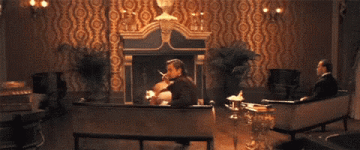Out of the country or to a more red area?Been a crazy couple of days for me so trying to get caught up. I already have my plans in place to GTFO when/if this shitshow becomes reality. God bless all and hold that fucking line!!!
It’s always darkest before dawn.
-
In Memory of Rebarcock.
As we navigate life without Pat 'Rebarcock.' Flood, who passed on Sept 21, 2025, we continue to remember the profound impact he had on our community. His support was a cornerstone for our forum. We encourage you to visit the memorial thread to share your memories and condolences. In honor of Pat’s love for storytelling, please contribute to his ‘Rebarcock tells a story’ thread. Your stories will help keep his spirit alive among us.
You are using an out of date browser. It may not display this or other websites correctly.
You should upgrade or use an alternative browser.
You should upgrade or use an alternative browser.
Master Thread Dance Your Cares Away/Fraggle/Law Abiding Citizens
- Thread starter Bryan74b
- Start date
Master Threads
200 million. But yes. And not being able to do business, buy food, etc. without the mark of the beast.it has been a while since I have read Revelation in the Bible, but doesn’t it talk about a 300 million man army marching from the east?
I’m confident.
I’ll add that I’m completely at peace.
so far I’m really liking the way the board has been set-up. Mods have done a good job of separating forums {MB, LAC, and NSFW} for relevant subjects. On tMB I mainly did anniversary threads, to avoid repetition, but for here I made this thread for a more general discussion of military history and specifically WWII. I think with the board just getting started having one broader thread should suffice. But of I course I might or any other poster for that matter could start a new thread.
Stalingrad is as good a place as any to begin a discussion of WWII. On this day in 1943 the battle was entering its final phase. The Soviet offensive had pushed the Germans back to the outskirts of Stalingrad and the last link to the outside, Gumrak Air Field, would fall on January 23. Most German troops had already accepted their fate as many had begun to retreat without orders into the ruins of Stalingrad which would provide the final shelter for 6. Armee. As the fighting returned to the old stomping grounds of the Fall of 1942 German troops found themselves on familiar grounds but this time with their backs to the Volga. On January 26 the Soviets reached the Volga splitting 6. Armee into two major pockets and hastening the end. Gen. Paulus requested permission to surrender from Hitler but Hitler insisted the 6. Armee fight to the end as a point of German honor. By that point the condition of 6. Armee was deplorable practically all supply from the air, which was entirely insufficient to begin had ceased, German wounded were no longer even being provided the slightest medical care, ammunition was running out, and the troops were nearing complete starvation.
On January 30 Gen. Paulus was promoted to Field Marshall with the reminder from Hitler that no German Field Marshall had ever surrendered. The message to Paulus was clear. But the next day the southern pocket entirely collapsed when the Soviets reached the HQ for Paulus in a collapsed department store. While Paulus would infuriate Hitler by surrendering he refused to order the northern pocket under Gen. Strecker to lay down their arms. But all the same the situations was hopeless and February 2 the last major German force would surrender ending the bloodiest battle in history. The German Army would never fully recover from the loss of 6. Armee.
I gave you a like because I'm glad you came over.
You holding the slow down sign on Parramore? Bring extra clipsI'm working tomorrow in one of the worst neighborhoods in Orlando. While I'm hoping for some serious fireworks tomorrow in DC, if the shit hits the fan, I'm prepared to have an "interesting" shift. Kinda hope the hood goes crazy, means Trump pulled the rabbit outta the hat and the Dems are shitting their diapers.
Good.
Anything that breaks up big cities is good for patriot culture and liberty.
Also their getting what they voted for. Win / win.
Can you outbid the CCP and Bill Gates?I'm not out, but I am looking up acreage.
Kinda reads like “Bduild Bback Bbetter”This is a far cry from the end of anything. It's the beginning of something new.
We have come so far just creating our own community here.
I'm not saying anything is over with the focus of this thread, but at some point maybe we should make a new thread. "A new day" or something
We can keep this one open for odds and ends, but maybe start thinking about how we, as a like minded community, can come together to have or voice heard.
The most dangerous issue right now is demoralization - there is a blatant effort to completely demoralize the free thinkers in this country. And mass demoralization is societal brainwashing 101
We’ve been betrayed! Disperse!

The liberal plan to invade other states while bankrupting itself for federal funds; it's all on on full display at this point.
Surprises me. It was simply a press conference of Polk County Sheriff talking about the arrest of one his deputies that sent text related to the Capital incident. Crazy timesAnd just like that the video has vanished
Broken men are beaten men.This is a far cry from the end of anything. It's the beginning of something new.
We have come so far just creating our own community here.
I'm not saying anything is over with the focus of this thread, but at some point maybe we should make a new thread. "A new day" or something
We can keep this one open for odds and ends, but maybe start thinking about how we, as a like minded community, can come together to have or voice heard.
The most dangerous issue right now is demoralization - there is a blatant effort to completely demoralize the free thinkers in this country. And mass demoralization is societal brainwashing 101
SIAP
Pages behind, haven’t seen Trump video yet but I get the tone isn’t great. But the fact that from him and Pompeo it’s always “next administration”, not “new”, not “Biden”...is intentional. Having 30,000+ troops in a 10-sq mile area is way beyond a preventative measure.
It’s been a great pleasure to know all you Patriots over the last 3+ years and it’s far from over. Cary said it best earlier today.
We are the majority! Maybe we see the Art of War tomorrow, or maybe we lose a battle to win the war. Either way I’ll be here on 1/21 and beyond. Hang tight fam, there’s no reason not to hold the fvcking line!!! WWG1WGA
Pages behind, haven’t seen Trump video yet but I get the tone isn’t great. But the fact that from him and Pompeo it’s always “next administration”, not “new”, not “Biden”...is intentional. Having 30,000+ troops in a 10-sq mile area is way beyond a preventative measure.
It’s been a great pleasure to know all you Patriots over the last 3+ years and it’s far from over. Cary said it best earlier today.
We are the majority! Maybe we see the Art of War tomorrow, or maybe we lose a battle to win the war. Either way I’ll be here on 1/21 and beyond. Hang tight fam, there’s no reason not to hold the fvcking line!!! WWG1WGA
No it's not.. Bc the liberals that leave are only going to go down to the southern states and keep them blue. 1980 is probably a solid blue within the next 5-10 years, and FL is likely going to be under siege as well from the left.Good.
Anything that breaks up big cities is good for patriot culture and liberty.
Also their getting what they voted for. Win / win.
perhaps off target but WWII....my mother’s brother on the right...he was killed in 1944 on a B-17 bombing mission to Stuttgart, Germany...he was the bombadier...he had trained Clark Gable earlier.....however much you train Clark Gable...

the crew my uncle was with when he was killed..the navigator was also killed...when the pilot died in 2005 he had his ashes spread over the B-17 crash site...


the crew my uncle was with when he was killed..the navigator was also killed...when the pilot died in 2005 he had his ashes spread over the B-17 crash site...

hopefully the best is yet to come! This is not the last we have heard from Donald Trump. Or the Trump family. He has without a doubt been my favorite president since Ronald Reagan. May God bless and keep President Trump and his family
I’m looking forward to the Trump news network
I’m with you, but there is no way the FCC gives him license to form his own network. Maybe he buys into Right Side or Newsmax.
Did Hitler really want Stalingrad so bad because it was named after Stalin?
What should the Germans have done regarding the late 1942 to early 1943 period? (I know the real answer is not to fight a two front war)
Had the Germans just swung south in to the Caucasus and destroyed the oil wells, storage and refineries then retreated back into the Ukraine into more defensible positions, would that have altered the eastern front? (I know Hitler was never for retreating) They could have baited the Soviets into attacks then countered attacked on their terms. I know the Germans wanted/needed oil and the Caucasus had plenty but denying the Soviets of oil would have wrecked havoc on their army/war economy.
Hitler did not mention Stalingrad by name until issuing Directive 45 on July 23, 1942. The Red Army had been making a determined stand along the Don River Bend so Hitler decided to get the offensive moving by splitting Army Group South. Originally the plan had been to march to the Volga River and the Caucus Mountains in succession but frustrated by the Soviet defense along the Don Hitler ordered them taken simultaneously. German supplies had been carefully accumulated for the planned moment and Hitler completely derailed the German supply situation with that decision. Germany barely had enough to undertake the offensive at all and no where near enough to support a simultaneous drive to the Volga and Caucus.
Stalingrad was actually a pretty significant objective. That area of the Soviet Union was very sparsely populated and devoid of geographic features. Pretty only much open steppe with a couple of major rivers and very small towns were around Stalingrad. Not only was Stalingrad a major industrial city but it was also the only place where a railroad connected the Dnieper and Volga Rivers. However as the battle wore on the Germans were not able to entirely capture the place Hitler become more motivated by ideological reasons.
As for the oil fields in the Caucus Mountains the Germans never considered a large-scale type raid that you suggested. Of course had the Germans taken the oil fields and were forced to retreat later they would have set the refineries on fire. But as it was the only significant oil field in Caucuses the Germans took was at Maikop which had been destroyed by the retreating Red Army. The Germans were never able to get any oil from the Caucuses. As the logistical support of Army Group A collapsed and the Red Army defenses stiffened in the hilly and mountainous terrain Hitler did order the Luftwaffe to conduct large-scale strategic of the oil fields. This effort continued well into 1943 long after Army Group A had retreated back towards the Crimea. But in the end no consequential damage was ever done to the oil fields, aside from Maikop.
The main critiques of the offensive have been:
1.) splitting Army Group South when there was not enough supplies for two separate offensives at the same time. This would completely immobile Army Group A by the end of September.
2.) becoming fixated on Stalingrad after the Volga had been reached. The Germans actually reached the Volga on the very first day of the offensive, August 23, about 5 kilometers to the north of Stalingrad. While Stalingrad would have at least needed to have been partially secured Hitler ordered the attacks to continue well into November. From September 13 to November 19, 1942 the Germans had taken close to 180,000 casualties in and around Stalingrad.
3.) not releasing the 9. Armee and diverting the 11. Armee. During the end of 1942 and beginning of 1943 Stalingrad was not the largest battle on the East. 9. Armee of 30 divisions held the Rzhev Salient which was relentlessly attacked by the Red Army. Before the offensive began the German General Staff had advocated the massive 9. Armee be move to protect the flanks of 6. Armee. Additionally after 11. Armee had conquered Sevastopol to end the Crimean Campaign Hitler had ordered the 11. Armee be moved to Army Group North to take Leningrad, an offensive that of course never took place. So instead of poorly trained, equipped, and often low morale Romanian, Italian, and Hungarian troops protecting the flanks of the 6. Armee there could have been high quality German troops.
I gave you a like because I'm glad you came over.
I've been here bud
I've been here bud
I'm gonna go ahead and take credit for that.
Half the channels I subscribe to on YouTube came from rabbit holes you suggested. Of course I put your tag in the APB thread.
Wake them up or make some babies.No it's not.. Bc the liberals that leave are only going to go down to the southern states and keep them blue. 1980 is probably a solid blue within the next 5-10 years, and FL is likely going to be under siege as well from the left.
Both should be easy for a LAC.
There’s absolutely no end in site. This will continue until it happens to everyone that doesn’t agree with what they are told to believe. It’s all lies on both sides!Wow. Just wow.

EXCLUSIVE: I've Been BANNED From Owning A Firearm, A Warning Of What's To Come For All Conservative Americans
For years, Big Tech has used me as Patient Zero in their test case in mass de-platforming by eliminating my ability to reach the public because of my political views. Being forced to use alternative social media sites, I know I’ve been a little “offline” since I ran for Congress in President...loomered.com
No. Looks like it’s 3 years old (according to someone responding on Twitter)Is this legit?
Two words: Voting machines.Come on down to Florida where our governor isn’t a pussy. We aren’t doing lockdowns. De Santis 2028 after he second term as governor.
Hey guys,
We've created a new way to donate to the site! We have a link on our site that donates directly to us. We have some big things in the works and would love for the support of the community. If you believe in our vission and want to help us achieve it then please donate! Keep in mind that donations are totally optional and not required. We appreciate everything that is given though and it means a lot to us. You can find out link to donate at the top of the site and on this post!
We've created a new way to donate to the site! We have a link on our site that donates directly to us. We have some big things in the works and would love for the support of the community. If you believe in our vission and want to help us achieve it then please donate! Keep in mind that donations are totally optional and not required. We appreciate everything that is given though and it means a lot to us. You can find out link to donate at the top of the site and on this post!
Hey guys we've got a new donation link on our site. We already closed down the GoFundMe so users can no longer get the Founder tag anymore. Those of you that already donated and have the tag we really appreciate your help and if you would like to continue donating you can still do so and we have plans to show our appreciation for those who do. You can find the link to donate at the top of the site and also here https://crootn.com/index.php?donate/
Thanks again to all of you that have helped get this moving and we have some big things in the works for you all!
Thanks again to all of you that have helped get this moving and we have some big things in the works for you all!
I expect we will have to have all the infrastructure from front to back to keep this place going at some point.There’s absolutely no end in site. This will continue until it happens to everyone that doesn’t agree with what they are told to believe. It’s all lies on both sides!
I'm already making moves so I have cash to help chip in when the time comes.
I'm looking forward to when they start to eat their own.
Last edited:
The “calm before the storm” vid? Yes, it is 3 plus years old.No. Looks like it’s 3 years old (according to someone responding on Twitter)
I think the question is, did Pompeo really post it?
Great to see you over here. I've been trying to recruit Velo1 and bamaman1977 so we maybe we can start a new Viet Nam thread. They're considering it and I'll mention that you're here now. I love your knowledge and analysis.so far I’m really liking the way the board has been set-up. Mods have done a good job of separating forums {MB, LAC, and NSFW} for relevant subjects. On tMB I mainly did anniversary threads, to avoid repetition, but for here I made this thread for a more general discussion of military history and specifically WWII. I think with the board just getting started having one broader thread should suffice. But of I course I might or any other poster for that matter could start a new thread.
Stalingrad is as good a place as any to begin a discussion of WWII. On this day in 1943 the battle was entering its final phase. The Soviet offensive had pushed the Germans back to the outskirts of Stalingrad and the last link to the outside, Gumrak Air Field, would fall on January 23. Most German troops had already accepted their fate as many had begun to retreat without orders into the ruins of Stalingrad which would provide the final shelter for 6. Armee. As the fighting returned to the old stomping grounds of the Fall of 1942 German troops found themselves on familiar grounds but this time with their backs to the Volga. On January 26 the Soviets reached the Volga splitting 6. Armee into two major pockets and hastening the end. Gen. Paulus requested permission to surrender from Hitler but Hitler insisted the 6. Armee fight to the end as a point of German honor. By that point the condition of 6. Armee was deplorable practically all supply from the air, which was entirely insufficient to begin had ceased, German wounded were no longer even being provided the slightest medical care, ammunition was running out, and the troops were nearing complete starvation.
On January 30 Gen. Paulus was promoted to Field Marshall with the reminder from Hitler that no German Field Marshall had ever surrendered. The message to Paulus was clear. But the next day the southern pocket entirely collapsed when the Soviets reached the HQ for Paulus in a collapsed department store. While Paulus would infuriate Hitler by surrendering he refused to order the northern pocket under Gen. Strecker to lay down their arms. But all the same the situations was hopeless and February 2 the last major German force would surrender ending the bloodiest battle in history. The German Army would never fully recover from the loss of 6. Armee.
Still holding the line...but if it doesn’t happen tomorrow we need to have a third party and pull from the sensible Dems ( if there are any left).....but I think there will be some when they see the shit happening in this admin they will want to move to another party....spare me we will never win because at this point I feel the with the republicans, the Patriots still lose IMO....why say you’s?
Similar threads
- Replies
- 13
- Views
- 596
- Replies
- 6
- Views
- 339
- Replies
- 0
- Views
- 2K
- Replies
- 56
- Views
- 5K




